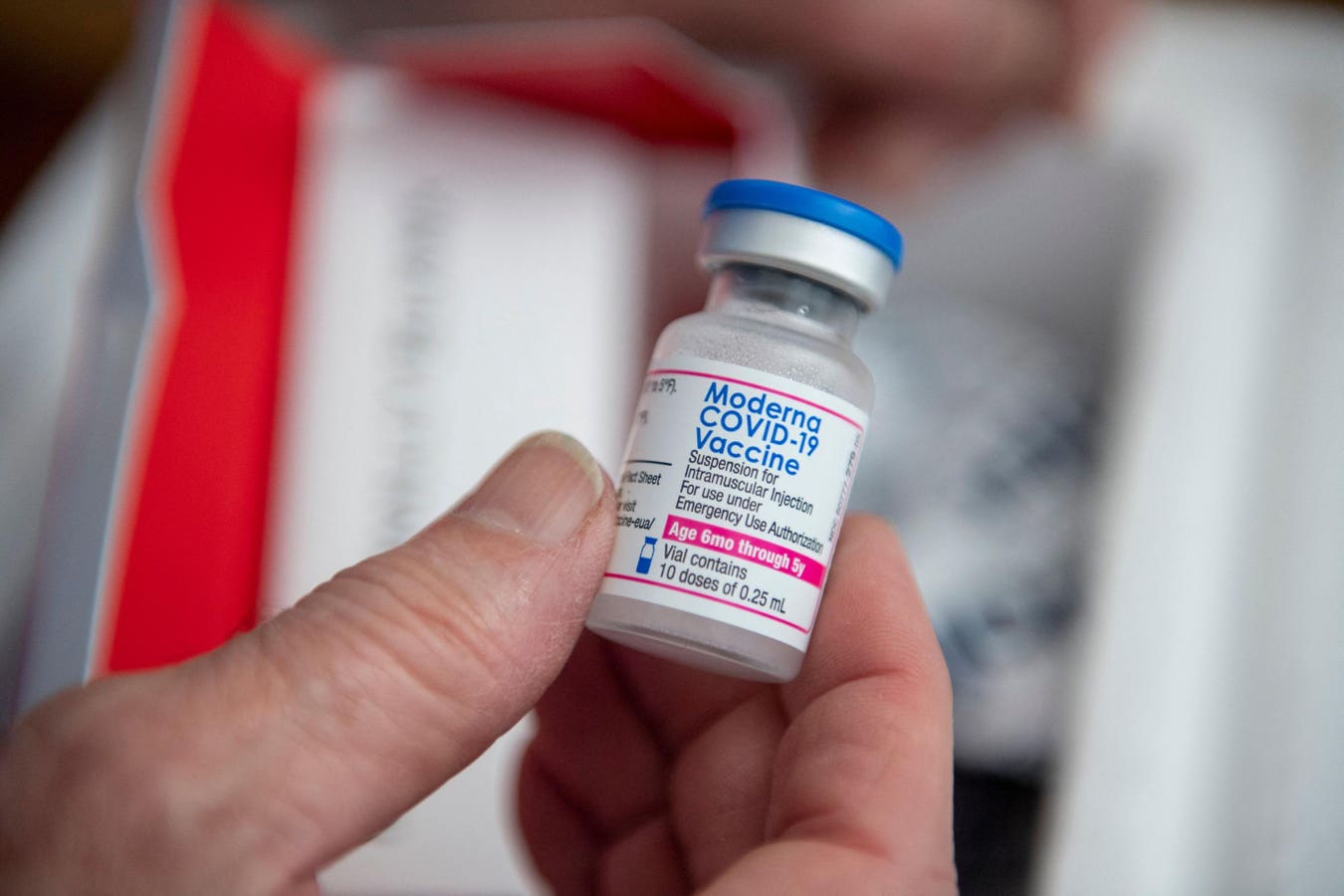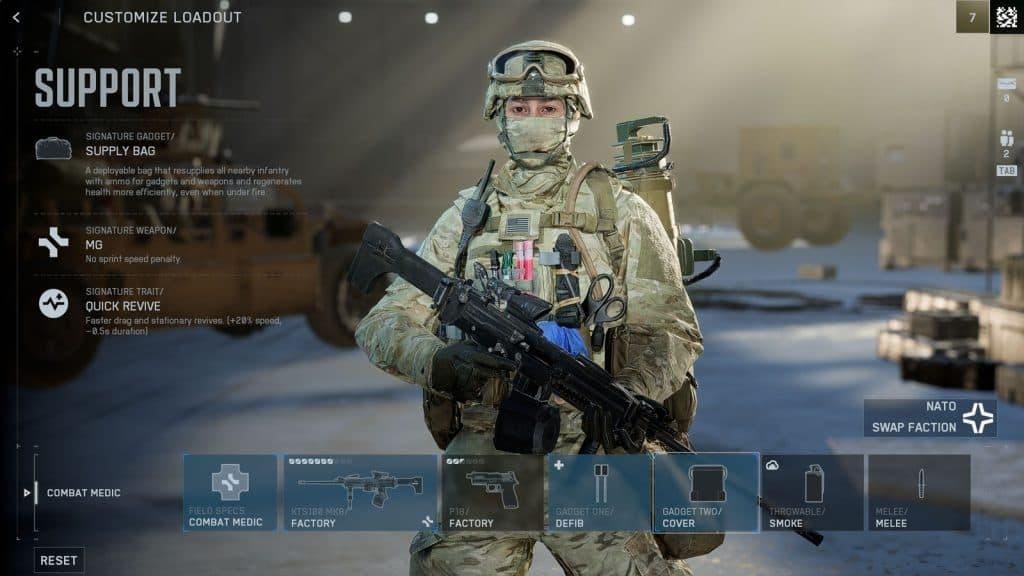A medical workers holds a vial of the new Moderna child Covid-19 vaccine before filling syringes with it at Temple Beth Shalom in Needham, Massachusetts on June 21, 2022. (Photo by Joseph Prezioso / AFP) (Photo by JOSEPH PREZIOSO/AFP via Getty Images)
AFP via Getty Images
The FDA recently approved new Covid vaccines for Americans, but due to certain restrictions, there has been mounting confusion on what they are, how much protection they will offer, and if various insurance companies will cover them. Below are answers to some common questions the general public may have on the new updated Covid vaccines.
How Many Updated Covid Vaccines Are There?
To date, there will be three new updated Covid vaccines. A Moderna vaccine has been approved for those six months of age and older, a Pfizer vaccine for those five years of age and older, and a Novavax vaccine for those 12 years of age and older.
What Strain(s) Will The Vaccines Protect Against?
The updated vaccines will target the JN.1 lineage of Covid-19, using the LP.8.1 strain. This lineage is a descendant of the Omicron variant of the virus. Currently, the dominant strain in the United States that is causing most infections is the XFG, or “stratus” variant, according to data from WastewaterSCAN.
As the XFG is a descendant of the Omicron variant and is closely related to the LP.8.1 strain of the virus, the newly updated Covid vaccines should offer protection against this dominant variant and will be effective at preventing severe illness, hospitalization and death, per the World Health Organization.
Who Can Get The Vaccine?
Traditionally, anyone six months of age and older were eligible to receive Covid shots. That changed recently when the FDA restricted the vaccine for those 65 years of age and older, or for younger individuals six months of age and older with an underlying condition that would put them at high risk for severe Covid infection. These individuals will likely be able to get the vaccine at various healthcare clinics and pharmacies with insurance covering the cost of the shot.
What Qualifies As High Risk For Severe Covid Infection?
Those under 65 years of age will need to have at least one medical condition that would put that at high risk for severe Covid in order to get the new updated Covid vaccine. Although it remains unclear exactly how many and what conditions qualify for putting one at severe risk for Covid infection, the CDC back in February identified 22 qualifying conditions that include obesity, depression, diabetes, asthma and cancer.
This risk could be modified this month by the CDC since the Advisory Committee on Immunization Practices is set to meet September 18th to make formal recommendations on the Covid vaccine. In addition, although pregnancy was included back in February as a qualifying condition for getting the Covid vaccine, Secretary of Health and Human Services Robert F. Kennedy Jr. has since stated that healthy pregnant individuals would not qualify to get the shots. Further clarification will likely come later this month.
Can You Still Get The Covid Vaccine If You Want To And Do Not Qualify Under The FDA Restrictions?
If you are a healthy young adult or child that does not have an underlying condition that would put you at risk for severe Covid, in theory you could still potentially get a Covid shot, but there could be significant barriers. Most adults would need to get a prescription from their doctor and then present it at a pharmacy or health clinic to get the vaccine. For children, Secretary Kennedy is now requiring shared decision making between parents and physicians, which requires a conversation in order to possibly get a prescription for the Covid vaccine.
However, there may be significant barriers for each of the above situations to play out. For example, some Americans may not have a primary care doctor, thus precluding them from getting a prescription for the Covid shot. Even if they were to get a prescription, they may not be willing to pay the $150 for the Covid vaccine, particularly if they are uninsured and have to pay the cost out of pocket. More than 27 million Americans lack health insurance, according to the CDC. Finally, some physicians may be reluctant to write a prescription for the Covid vaccine “off-label” since it has not been officially recommended or approved by the FDA for a certain subset of the population.
The ACIP is set to meet September 18th, and the outcome of that meeting and subsequent CDC approval could provide further clarification on Covid vaccine approvals and whether or not insurance companies will cover the shots, since insurance coverage for many plans is intimately tied with the recommendations from the ACIP and CDC.









